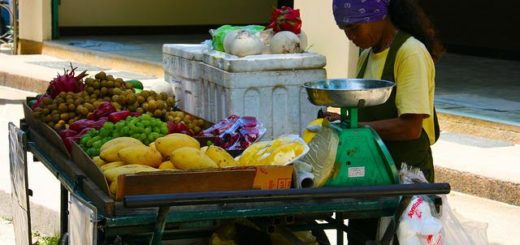Call for Consultancy – Business Mapping
Title of the assignment: Dadaab Business Mapping
Country: Kenya
Duration: 45 days exercise
1 Background information
1.1 Background on the context
Kenya remains the third largest refugee host country in the Horn of Africa Region. As of December 2021, there are over 238,254 (121,909 female, 116,345 male) refugees, mostly of Somali origin, in Dadaab camp. It is estimated that 25% is made of the youth and young adults aged 15 – 35 years.
Since December 2014, the United Nations Refugee Agency (UNHCR (UN High Commissioner for Refugees)) has supported a voluntary repatriation programme for Somali refugees under the framework of a Tripartite Agreement between governments of Kenya and Somalia. More than 83,000 Somali refugees, the majority from the Dadaab camp, have returned under this agreement, although the pace of return has slowed significantly since 2017. Before the 2021 conflict in Ethiopia and the 2020 COVID, repatriations had also started for Ethiopian refugees in Dadaab. In 2021 return intentions survey carried by UNHCR/RAS revealed that only 6% of the refugees would consider returning in the next 12 months.
Garissa County, and the Dadaab and Fafi sub-counties which surround Dadaab camp, are therefore likely to host a residual refugee population of between 150 – 200,000. It is this population who need socio-economic integration into the local areas and the surrounding host community who require development support. Efforts to increase employment via building skills among refugee populations in Dadaab has created some capacity in areas including transport, construction, trade etc. However, in many cases these initiatives have not systematically linked refugees’ work to market opportunities. NRC and the International Trade Centre (ITC) Refugee Employment and Skills Initiative (RESI) project baseline survey (March 2018) revealed that various graduates were not using their acquired skills to earn an income or access sustainable work opportunities. This has led to primarily informal business opportunities for refugees and limited formal trade and business with the host community. Refugees and host community members alike lack proper market information and access to necessary business services to develop a small business or to grow their existing ventures.
Related studies including: “The quest for durable solutions for Dadaab’s refugees June 2021 – Durable Solutions Analysis” (ReDSS 2021, various value chain analysis such as henna, poultry, neem tree, waste management and recycling, Livestock(sale of live animals- camels, cows, goat, and sheep, together with respective meat, skin, poultry, and honey), commodity trade (food stuff, sugar, pasture, rice) and electronics and beauty (henna, decoration, apparels, tie and dye, Horticulture production etc, “An Assessment of Kenya’s Private Sector Digital Outsourcing, Landscape and Its Potential to Support Refugee Economic Inclusion 2022), Gender Market Assessment (ABLI-G 2022), TVET tracer study (REACH/UNHCR, 2021), Multi Sectoral Needs Assessment (REACH, 2021), The Dadaab Inter Agency Participatory Assessment (2021), are some of the studies from which the Dadaab Business Mapping could be built on. All the above studies have rich information related to business in Dadaab/Garissa.
The identified overarching challenges limiting sustainable livelihood opportunities have been identified and include low vocational and entrepreneurial skills, limited capacity for business development and entrepreneurship, and obstacles within the business environment, such as the lack of information and relevant partners with whom to create business partnerships. Moreover, due to the Kenya’s refugee policy, refugees have limited access to external markets which is crucial for the establishment of market linkages and diverse income sources. Strong market links must be developed to provide refugees and host community members an opportunity to shift from a model of continued dependency towards self-reliance. Furthermore, there remains a lack of focus on creating an enabling environment for business development. This has created a growing need for socio-economic integration into the local areas through an integrated approach from skills to the labour market.
1.2 Activities and presence of NRC, DRC and ITC
The Norwegian Refugee Council (NRC) is an independent humanitarian organization helping people forced to flee. NRC works in 31 countries in crises to help save lives and rebuild futures by providing camp management, livelihood & food security (LFS), clean water, shelter, legal aid, and education. NRC protects displaced people and supports them as they build a new future. NRC has been operational in Kenya since 2007 in Dadaab and in 2012 in Kakuma camps.
In Dadaab, NRC works with the International Trade Centre (ITC) which is a joint agency of the United Nations and the World Trade Organization, focusing on developing the export capabilities of small and medium-sized host and refugee businesses in developing and transition economies. ITC is 100% “Aid for Trade”, supporting trade that delivers inclusive and sustainable development results.
NRC also works with Danish Refugee Council (DRC) on skilling refugees and surrounding host community in various markable skills increasing chances for the assisted to earn income and improve on their livelihoods.
1.3 NRC, DRC, and ITC ‘s intervention specific to the Mapping
Area Based Livelihoods Initiative – Garissa (ABLI-G) is a three (3)-year project that commenced in April 2020, funded by the European Union (EU) Trust Fund for Stability and Addressing the Root Causes of Irregular Migration and Displaced Persons in Africa (EUTF). The overall objective of the project is to enhance the self-reliance of refugees and host communities in Kenya. This proposed action addresses the second outcome of the project, which is mapping of Dadaab businesses in connection to Garissa market, identifying and mapping of trade promotion organization and trade investment supporting institution in Garissa, as well as identifying the legal barriers faced by the Dadaab businesses opportunities in enhancing market linkages and workable solutions.
Norwegian Refugee Council, Danish Refugee Council, International Trade Centre, and Danish Refugee Council have been implementing livelihoods projects in Dadaab refugee camp and the neighboring host communities with the objective of enhancing self-reliance by activating market status and outlook thereby, improving economic status of households of the refugees and host communities through creation of enabling environment for business. Creation of active MSMES (micro small and medium enterprises) through cash grant support, skill development and provision of legal and information support.
NRC, DRC, and ITC would like to conduct mapping of Dadaab businesses in refugee camps and in surrounding host communities. Realizing that Dadaab market relies fully outside markets in Garissa, Nairobi, and Mombasa, it has not yet established explicitly the networks. To establish the networks, NRC with ITC and DRC would like to map businesses and establish their respective status and nature, relationship between the business on how they support each other and further establish the source of items in the market with connection to larger Garissa market.
2. Purpose of the mapping and intended use
2.1 Overarching purpose
While ITC in conjunction with NRC conducted Market Assessment (2019) and Entrepreneurship Ecosystem mapping (2020) and the Amahoro, (An Assessment of Kenya’s Private Sector Digital Outsourcing Landscape and Its Potential to Support Refugee Economic Inclusion, 2022) to help in understanding business and entrepreneurship environment in Garissa County, these assessments were about understanding the skills levels for TVET and various value chains within it, entrepreneurship ecosystem in Garissa, while this mapping will be targeted to find out the status of the Dadaab businesses.
The business mapping will not only understand the nature of the business in Dadaab, but also complement further available information to establish-:
i. Diversity of the business sectors active in camps (e.g., businesses in skill-based service, retails, home-based production), business size (employee, financial), supplies/product chains (guide level, depth and focus of support)
ii. Registration (legal) status of each of the businesses and restrictions/barriers to the entrance of new traders in the market for each of the business type.
iii. Potential of each of the businesses to provide apprenticeship/job placement and support local employment and (support skills-trainees placement) and options for doing.
iv. Main barriers hindering growth of businesses as well as key areas of needs (inform business and entrepreneurship development activities) Access to internet and potential for digital marketing.
v. Business Support Institutions operating in Dadaab and local business accessibility to the institutions
vi. Nature, and depth of services rendered to host and refugee businesses and key gaps
vii. Identifying Option for strengthening and enhancing linkages among business support institutions?
2.2 How will the analysis be used?
The mapping results/information will help identify gaps in the market status and connections which can guide in improving market system services within the scope of the project.
Additionally, the analysis will be used to identify potential businesses that can provide project trainees with apprenticeship, traineeship, and other practical on-job training to increase diversity market opportunities and enhance complementary delivery of project outputs.
2.3 Who will use the information?
The primary users will be the ABLI-G Consortium members- NRC, DRC, and ITC- and donors, particularly the European Union Trust Fund (EUTF), Kingdom of Netherlands, Norwegian Foreign Affairs (NMFA), SIDA (The Swedish International Development Cooperation Agency) (The Swedish International Development Cooperation Agency). Other users include UNHCR, NGOs (Non-Governmental Organizations), County government and other livelihood partners in Dadaab.
3. Scope and lines of inquiry
3.1 Scope:
The mapping is expected to be completed within a maximum period of 45 days from the date of signing the contract. The geographic location for the mapping is Dadaab refugee camps and surrounding host community areas (Dadaab and Fafli), Garissa in Kenya. The mapping will be guided by the description in section 2.1
The Mapping will be done within the existing national legal frameworks and the methodology should address the different circumstances and target groups.
The mapping should involve government ministries/department experts, community leaders, market traders, women in markets, civil societies, representatives of private sector institutions etc. and across different value chains, including handicraft sectors, digital enabled services, agriculture/agri-business, transport, trade, garages, beauty industry, commerce etc.
3.2 Lines of inquiry
The mapping will focus on the following lines of enquiry:
1.Business Mapping
i. What type of businesses and in which sectors? (e.g., businesses in skill-based service, retails, home-based production), what is the size of the business in terms of number of employees, capital, supplies/product chains (guide level, depth and focus of support)
ii. Does the business have registration with KRA, county government or relevant bodies?
iii. Does the business have capacity to offer apprenticeship/job placement and local employment to youth trainees in different skills courses?
iv. What barriers do they face that hinder their growth and key areas of support needs?
v. Does the business have access to internet and potential for digital marketing?
- Institutional mapping (TISI/TPOs)
i. Which business support institutions are available to support local businesses for both host and refugees?
ii. What is the nature, and depth of the support to entrepreneurs and gaps?
iii. How do we strengthen and enhance linkages among business support institutions?
4. Methodology
The Mapping should make use of scientific research approaches and facilitate the collection of sex-disaggregated quantitative and qualitative data at various levels. Qualitative research methods should include Focus Group Discussions (FGDs) and Key Informant Interviews (KIIs) with government ministries/department experts, community leaders, market traders, women in markets, civil societies, representatives of private sector institutions etc. and across different value chains, including handicraft sectors, digital enabled services, agriculture/agri-business, transport, trade, garages, beauty industry, commerce. The Mapping may also refer to other assessments mentioned in the background section.
The methodology will be a mixed-methods approach including both qualitative and quantitative components. The data collection methodologies should use a participatory approach engaging all relevant stakeholders, including community leaders, government counterparts, business community, NGO staff. The consultant is expected to review the methodology while considering the government of Kenya and UNHCR COVID – 19 protocols.
- Conduct a desk review of the current market outlook situation in Dadaab including if there are other agencies which have conducted similar market mapping activities in the recent past.
- Review of Lines of Enquiry, ABLI information needs/ gaps and methodology
- Key informant for mapping of Business Support Institutions within the scope of ABLI-G project such as the department of trade and entrepreneurship, chamber of commerce and financial institutions, county revenue collection authorities, market management committees both Dadaab and Garissa, business’s owners of various categories.
- Develop the business mapping tools, focus group discussion questionnaire, KII questionnaire, that are to be used during data collection and share the same with NRC, DRC and ITC for input and approval before use.
- Work with NRC, DRC, and ITC and community staff in guiding collection of data during the exercise in the camps and host community locations of Fafi and Dadaab sub-counties.
- Engage with livelihood partners to develop common recommendations of findings of the business mapping report.
5. Management of the mapping exercise
The person responsible for ensuring that this mapping takes place is the NRC Area Manager located in Dadaab. He will be the consultant’s main focal point and will provide administrative and logistical support including transport and acquisition of relevant clearances for the Study.
A Steering Committee (SC) will be established by the partners, with the following members:
- Steering Committee chair: Area Manager
- Mapping manager: M&E Coordinator
- Steering committee members: ITC Programme Manager, ITC National Coordinator, NRC IPM, NRC and DRC Regional LFS Adviser, NRC Regional Cash and Markets Adviser, ABLI-G Project Manager, DRC Economic Recovery Team Leader
The Steering Committee will oversee administration and overall coordination, including monitoring progress. Weekly meetings will be held with the consultant to check on the progress, quality of the outputs, guide on the process and help in resolving any technical issues that may arise during the study. The main functions of the Steering committee will be:
- Establish the Terms of Reference of the mapping.
- Recruit the consultant
- Review and comment on the inception report and approve the proposed mapping strategy.
- Review and comment on the mapping tools
- Review and comment on the draft mapping report.
- Approve the final report
- Establish a dissemination and utilization strategy.
NRC, DRC, and ITC will provide the following support to the Consultant team:
- Sharing of the relevant literature and data, as well as specific policies.
- NRC will introduce the consultant to the stakeholders and key informants.
- Assist in meeting arrangements with stakeholders, key informants, and beneficiaries, if requested by the consultant.
- Support in election of data collectors, translators, facilitators, note takers, if requested by the consultant.
- Support in organizing transport, internal flights, and accommodation at NRC compound.
- Security debriefing.
6. Deliverables and reporting deadlines
The consultant is expected to lead, accomplish, and submit the following deliverables within the agreed timeframe and budget estimate:
- An inception report, which will serve as an agreement between parties on how the mapping will be conducted.
- A final mapping report with quantitative and qualitative data and use of case studies accompanied by a series of recommendations (20 pages).
- Produce a list of networks of trade promotion organizations and trade investment support institutions available in Dadaab that are of use in improving and enhancing the economic activities of the refugee and host communities SMEs in Dadaab.
- List of Potential businesses that can be used for placement of TVET graduates
- Prepare power point dissemination presentation
- Lessons learning event
7. Timeframe
Phase Deliverables and Working days
Inception phase Draft inception report
Tools development phase
Deliverable 1: final inception report including budget, methodology and qualitative research tools, approved by steering committee. (10 Days)
Data collection phase
Desk review, survey, FGDs, interviews and field visits Dadaab. COVID – 19 protocols to be observed (10 days)
Data analysis and validation workshop phase
Analysis and Presentation of initial findings and draft of the report. (10 days)
Mapping report phase Draft Mapping Report, for comment by (steering committee) (10 days)
Deliverable 2: Learning event Final report presentation (3 days)
Deliverable 3: Final mapping Report (2 days)
Final report deadline: 30thJune, 2022
8. Mapping consultant team
The lead consultant/Researcher must be a Senior Expert in business and market related subjects with vast experience in assessments or mapping of businesses in a complex context. The lead consultant should hold a minimum of a master’s degree in business/marketing, Development Studies, Social Science, Economics, Rural Development or related subject and practical knowledge in conducting similar analysis/assessments in Kenya. Qualifications must include:
- A minimum 10+ years in, designing and implementing analysis/assessments or in humanitarian and development projects with experience in refugee Livelihood
- Proven track records in leading study teams and producing quality reports.
- Extensive quantitative research and data analysis experience using statistical software (SPSS, Stata, and others).
- Expertise in facilitating qualitative data collection and analyzing qualitative data using rigorous techniques.
- Proven ability to work with community and government stakeholders.
- Proven consultancy and/or work experience with NGOs as well as experience with other international and bilateral organizations on humanitarian programmes. Good knowledge of refugee response self-reliance interventions.
- Excellent writing and presentation skills.
- Excellent English writing skills required among someone on the research team.
- Somali, Swahili languages are added advantage.
Bids must include the following:
- Proposal including outline of mapping framework and methods, including comments on the TOR (Terms of Reference), proposed period and work plan, how to cater for COVID -19 requirements (bids over 3 pages will be automatically excluded).
- Proposed mapping budget, including professional fees, travel costs, and administration costs (if any)
- CVs
Along with CV interested candidates should submit.
- A technical and Financial proposal explaining their comprehension of the ToR and how they would approach this assignment, summarizing the methodologies and approaches they plan to use, including a timeline.
- Two samples of similar previous assignments.
- Their availability
- Company profile or CV including three references
Due to high number of applications expected, only shortlisted candidates will be contacted.
Qualified candidates are requested to submit their complete applications through nairobi.logistics@nrc.no in PDF format before or on 10th May 2022 at 1700 HRS Promptly.
NB: Only shortlisted candidates/ firms will be contacted.
For enquiries, contact nairobi.logistics@nrc.no








